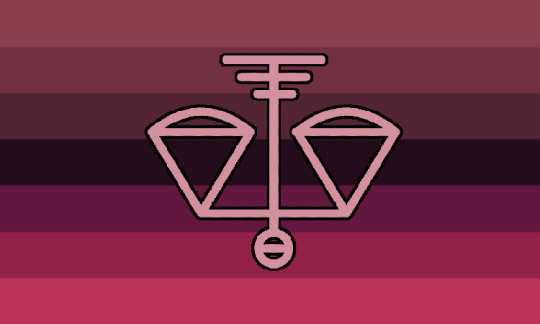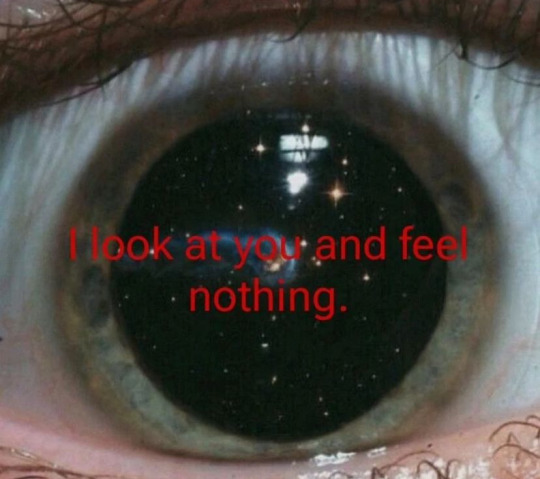#actuallyaspd
Text
people when i warn them my mental illnesses cause me to have inappropriate emotional responses: 👍🏻
people when i show those inappropriate emotional responses:
#actually aspd#actually npd#aspd#npd#clusterb#actually mentally ill#actually bpd#actuallyaspd#actuallynpd#cluster b#actuallybpd#bpd#actually schizophrenic#actually delusional#actually obsessive#actually autistic#autism#autistic#actually cluster b#schizospec#schizophrenia#seriously schizophrenic#mental illness#antisocial personality disorder#actually antisocial#actually narcissistic#actually borderline#borderline personality disorder#narcissistic personality disorder#ptsd
69 notes
·
View notes
Text

FATHER'S DAUGHTER
#this ones about The Disorder. you know *gestures vaguely*#artists on tumblr#actually cluster b#actuallybpd#actuallyaspd#mental health art#vent art#actuallyangry#beastcore
1K notes
·
View notes
Text
Do not claim to be a mental health advocate or a safe space for the mentally ill if you demonise systems, cluster B personality disorders and/or psychotic disorders.
#actually did#actually mentally ill#actually osdd#did#did community#did osdd#did system#mental illness#osdd#osdd1b#osdid#osddid#osdd community#osdd 1b#osdd system#cluster b#clusterb#aspd#actually aspd#npd#actually npd#actuallyaspd#actuallynpd#actuallybpd#bpd#cluster b personality disorder#antisocial personality disorder#actually narcissistic#narcissistic personality disorder#borderline personality disorder
584 notes
·
View notes
Text
"my ex was a narcissist!" and it's just a random dude who can't take accountability because patriarchy
#antisocial personality disorder#aspd#actually aspd#antisocial#antisocialpersonalitydisorder#antisocials#aspd tag#cluster b#actuallyaspd#low empathy#npd#narcissistic personality disorder#npd thoughts#actually npd#npd awareness#npd stigma#npd tag#narcissistic abuse
891 notes
·
View notes
Text
Honestly, I don't think there's anything wrong whatsoever with not feeling "negative" emotions such as grief, guilt, etc. What matters is how you DEAL with the situation, not how you FEEL about it.
For people with ASPD, SZPD, autism, certain psychotic disorders, NPD -- pretty much any disorder that may cause low empathy or flat affect -- it's just a fact of life we don't always (or ever) feel those emotions. (And of course there's way more disorders and symptoms than the ones I just listed, and of course some people who DO have those disorders CAN feel said emotions!)
If you hurt someone and don't regret it, that by itself does not make you a bad person. In fact, if you hurt someone, and want to amend the situation and not hurt that person again IN SPITE OF not feeling guilt? That's amazing. That's amazing and, in my opinion, very selfless.
If you don't feel grief after a loved one dies it doesn't mean you're an awful person who never valued them. As long as you stand by the people who DO feel grief, and offer them comfort or space or whatever, then it's fine that you don't feel it, because you're still being compassionate to those who do.
Honestly even if you feel annoyed or irritated or what have you at the people who are hurting, even that isn't anything shameful, because again it's about what you do, not about how you feel.
Maybe I'm just making defenses for my own ASPD self, but it really doesn't seem like a problem to me. Feelings are private, after all, actions and reactions are what's public, so it matters how you treat others, not how you feel about said others.
Statements like this might make empaths uncomfortable but I stand by it. No one is a bad person just for the way that they "feel", not to mention that a lack of remorse/guilt/sadness/etc is itself a symptom of many disorders and a common trauma response.
#mod julien#actuallyaspd#empaths hate us when we mask but also when we dont#either way they don't trust us and go out of their way to vilify us#but somehow the evil sociopaths are always the problem
214 notes
·
View notes
Text
Being someone with extremely low empathy but viewed as the opposite because I'm a good listener is wild - like genuinely people will form this intense sense of connection and attachment to me and labor under the assumption that I'm extremely empathetic just because I'm easy to talk to I guess?? I'm also AFAB, tiny and conventionally attractive so probably that helps but it's so bizarre to me at times like people will just plop down next to me and spill their guts lol
133 notes
·
View notes
Text
Excuse my lack of response, you just said something that my brain decided is an attack now I hate you until further notice and I'd rather not talk to you because if I do I might say something hurtful and I'm trying to convince myself that I'm a good person
#aspd#npd#bpd#cluster b#actually aspd#aspd tag#aspd feels#antisocial#aspd thoughts#actuallyaspd#aspd things#antisocial pd#aspd traits#npd tag#npd awareness#actually npd#npd things#npd vent#bpd things#bpd vent#bpd thoughts#bpd stuff
1K notes
·
View notes
Text
realizing that I apologize because I want people to leave me alone and stop pestering me about their feelings, not because I actually regret what I did/said
363 notes
·
View notes
Text
Did anyone else with low empathy experience confusion as a kid over why you had to clean up the entire house with your family? The way young me saw it, if everyone in the house were to clean up all of their own messes, the house would stay clean as a result. I still think it is the truth on paper, however now I comprehend "helping out" as a concept and have taught myself that it's expected of me. But as a kid, I got screamed at and called disrespectful over this multiple times, even if it is technically the truth. I still struggle to understand just why they were made so mad by it.
#vent#actuallyaspd#actuallyautistic#low empathy#actually aspd#autism#actually autistic#actuallyabused
57 notes
·
View notes
Text
narcissus understands me
#actually aspd#actually npd#aspd#npd#clusterb#actually mentally ill#actuallyaspd#actuallynpd#cluster b#actually cluster b#cluster b personality disorder#actually narcissistic#narcissistic personality disorder#narc abuse isnt real#narc abuse isn't real#narcissists#narcissism#npd culture is#npd posting#npd things#npd safe#actually bpd#npd vent#npd positivity#npd meme#npd traits#narcissus#actually clusterb#narcissistic pd#narcissus understands me
29 notes
·
View notes
Text


PSYCHOPATH
[PT: psychopath. /ENDPT]
— a flag for people who reclaim psychopath. exclusive to pwaspd regardless of diagnostic status.
— based off of aspdsolace's aspd flag (link), it's essentially a color adjusted version of it
#mad pride#psychopath reclaimed#psychopath flag#mogai safe#radinclus#critinclus#mogai blog#aspd safe#aspd#actuallyaspd#— horror coining#(not coined just my flag tag)
25 notes
·
View notes
Text
you'll never convince me that empathy's a real thing, what happens is you see a person in a bad situation and imagine being in their place so you put yourself in a bad mood too, you're not "absorbing or sharing their emotions" you're just making their bad situation about you and assuming they feel the same way as your imaginary self in your imaginary scenario, and you may get it right sometimes but without any guarantee exactly because there's no actual connection between the two emotional states
edit: check the comments before replying thx
#aspd#actually aspd#actuallyaspd#antisocial#antisocials#aspd tag#cluster b#low empathy#antisocial personality disorder#antisocialpersonalitydisorder#npd#npd tag#npd thoughts#empathy#empaths#actually narcissistic#narcissist#narcissistic personality disorder
532 notes
·
View notes
Note
ASPD & BPD culture is being 24/7 feeling destructive, enraged, hostile and aggressive.
.
#cluster b culture is#anonymous#cluster b#mod orange#aspd#bpd#aspd + bpd culture is#bpd culture is#aspd culture is#actuallyantisocial#actuallyaspd#actuallyborderline#actuallybpd
98 notes
·
View notes
Text
WORDS TO USE INSTEAD OF ANTISOCIAL, PSYCHOPATH OR SOCIOPATH.
by @scaryinclusive.
presently, antisocial is a word used to define individuals with antisocial personality disorder. an antisocial individual is someone exhibiting traits or symptoms of antisocial personality disorder. antisocial is regularly misused in derogatory, dehumanising and stigmatising ways, feeding into harmful stereotypes. aspd is a hugely misunderstood disorder many are uneducated on, and you can help reduce stigma by altering your vocabulary. this includes the use of 'psychopath' and 'sociopath'. the use of 'antisocial', 'psychopath' and 'sociopath' as an adjective, especially in an insulting or derogative form, is ableist, sanist and stigmatising.
help the aspd community out by opting to utilise less harmful, stigmatising language in your speech and writing! please note: the following words listed are not synonyms with or indicative of aspd symptoms or traits. but for the context the aforementioned labels are typically socially applied to, they are a beneficial replacement. feel free to reblog.
asocial. socially avoidant, might be inconsiderate or hostile towards others.
standoffish. distant or cold in mannerisms, might be unfriendly.
introverted. shy or simply quiet, socially reserved, prefers time alone and introspection.
ascetic. a good word for someone religiously dedicated in a way that might be unusual to others. means someone is abstinent from sensual pleasures and indulgence.
cold. affectionless, lacking warmth or fondness, emotionally detached.
cynical. believing others are only interested in themselves, untrusting or discrediting the goodness in other's actions / intentions.
blunt. direct and to the point without compromise.
dangerous. likely or able to cause harm / injury to themselves or others. someone being dangerous isn't always intentional, either.
violent. the use of or involving physical force with the intention to hurt, damage or kill another living or inanimate thing.
charming. a feigned trait, appearing as attractive or pleasant to others.
solitary. to be alone, without companions, maybe a preference to be alone.
unsociable. someone who doesn't enjoy being sociable or want to make an effort to behave in a sociable way in the company of others.
cruel. willing to cause pain / suffering to others, especially without feeling concern.
cunning. a skill in achieving one's ends by deception or evasion.
organised. someone that arranges things systematically, neatly or orderly. might favour or prioritise cleanliness.
collected. calm and self-controlled, cool-headed.
detached. separated or disconnected from one's surroundings.
distant. not invested or intimate, reserved and removed from the moment.
aloof. not friendly or forthcoming, a synonym of distant.
apathetic. lacking interest, enthusiasm or concern.
indifferent. unconcerned, no particular interest or sympathy.
insensitive. not showing or feeling concern for the feelings of others, should be noted that this can be unintentional with some individuals.
disinterested. a lack of interest or desire, not influenced by any potential advantages.
impulsive. acting on or doing something on impulse, without forethought or concern / consideration for consequence.
aggressive. likely to attack or confront, visibly or verbally responding to or seeking confrontation.
reckless. careless of consequences, lacking caution.
uncaring. not displaying sympathy or concern for others.
remorseless. deeply regretful - though not to be confused with regret, remorse might drive someone to not do something again due to such deep feelings of guilt.
mean. unkind, spiteful or unfair, if someone is mean they might not take your feelings into consideration.
abusive. extremely offensive or insulting. a form of interaction wherein the abuser is psychologically controlling, manipulating or harming you, depending on if physical or psychological.
morally corrupt. someone who behaves in a morally wrong way, such as being dishonest or partaking in criminal activities to gain power.
bully. someone who makes a habit of seeking out those they perceive as vulnerable, to harm or intimidate them.
threatening. a hostile or intentionally frightening quality or mannerism.
uncontrollable. cannot be controlled, unsolvable or cannot be alleviated.
rude. impolite in an offensive manner, bad-mannered or lacking respect.
disrespectful. showing a lack of respect or courtesy.
callous. showing or having an insensitive and cruel disregard for others.
unusual. not commonly occurring or done, different from the usual.
problematic. something or someone that presents or creates a problem.
dispassionate. uninfluenced by strong emotion, can be rational or impartial to a situation because of this.
logical. someone who exhibits capable, clear and sound reasoning.
nasty. behaving in a very bad or unpleasant way.
disorderly. can mean lacking coordination or tidiness, contributing to the disturbing of peacefulness and the law, behaviour that is not law-abiding.
disruptive. causing or tending to cause disruption / a disturbance.
rebellious. a desire or drive to resist authority, control or convention.
controlling. someone that determines the behaviour or supervises the running of others / the environment.
#mental health awareness#writing resources#actuallyaspd#aspd safe#rp resources#resources.#writing resources.#aspd related.
48 notes
·
View notes
